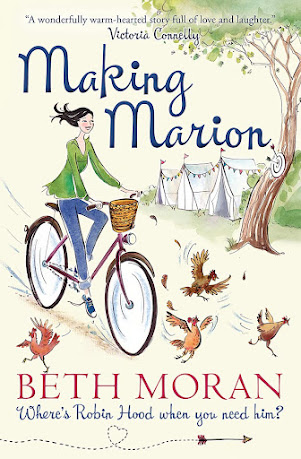“The Outlaws of Sherwood" by Robin McKinely (1988)
This book has grown in my esteem since the very first time I read it, to the second time I read it, and finally when I have read it for a third time and found it extremely satisfying. I greatly enjoy what I call a "straight retelling" — a contemporary novelization of the standardized version of the Robin Hood story. The main characters are who you expect them to be, doing the things you expect them to be doing. This book ticks all the boxes, and is funny to boot. When someone asks for an approachable introduction to the story of Robin Hood, but aren't really looking for a classic, I have long recommended this one, and I'll be pleased to continue.
In The Outlaws of Sherwood, the plot is as you expect. Robin is a young yeoman in his late teens when he is outlawed and must make a home for himself in the forest. With the help of his closest friends, Marian and Much, he creates an outlaw camp and they work to uphold justice and equality in a system that has mistreated them. The political outlook stresses the popular trope of discontent between Saxons and Normans, and the outlaws spend their time devoted to social justice and personal survival rather than upholding or campaigning for the monarchy.
There's a practicality to this novel. McKinely outlines the daily activities and necessities of living and surviving in the forest, painting a bleak reality while maintaining a lighthearted and genuine story. The realism of be being an outlaw in Sherwood lends itself to excellent worldbuilding and shows the care and time that was spent on building out this book.
The realism extends to the characters as well. Notably, Robin is more of a reluctant hero and leader, and not particularly skilled in archery. Rather, Marian is acknowledged as the best shot of them all, as she seamlessly moves between her life as a knight's daughter and a frequent visitor to Sherwood Forest.
Another character choice I enjoyed is the variety of female characters. Most of them are of the author's own invention, and they felt natural in their presentation. Some are skilled fighters and some find their own element in other ways at the outlaw camp. Each character has their strengths and weaknesses, and I found myself genuinely attached to the original characters. Alan's wife (named Marjorie) and Marian are the only traditional female characters, and the rest are original to the story. In many ways, this book is among my favorites for its representation of medieval women because it does not uniformly cast its female characters. There is a range of characterization and skillsets, and even the female characters who are not as physically active still show their value (and are valued) in other areas.
I only have one bone to pick with this book; I found the ending extremely dissatisfying. The image of "good King Richard" is not one I particularly enjoy or particularly dislike — it's just par for the course in most Robin Hood stories, despite the historical misrepresentation. King Richard's appearance at the end is what I anticipated and knew would happen. It's what always happens, and I didn't expect The Outlaws of Sherwood to be any different.
However, I did expect the scene to play out differently than it did. Throughout The Outlaws of Sherwood, the outlaws make it abundantly clear that they take issue with King Richard as a monarch. They have no love for him, no real allegiance. When the king presses the outlaws into military service, stressing that it is a punishment and they will probably be injured or killed, I genuinely believed that they would refuse and decide to continue living in the forest rather than fighting in a war for a king they actively dislike. And yet, on the final page, they all raise a toast to a king to whom they had no particular allegiance. Color me confused.
The ending simply did not match the characters as they had been presented throughout the rest of the novel. They proved to be practical and capable throughout the story, and I don't think they'd agree to a war they didn't believe in just because the king asked them to go. What makes King Richard the exception to the rule when it comes to defying authority?
Aside from the ending, however, I do find The Outlaws of Sherwood to be a strong addition to any collection of Robin Hood fiction, and it has become one of my personal favorites. I think I'll just skip the last chapter next time.
(Note: This review is an edited version of a review I wrote on Goodreads in May 2021. I'm currently working to fill out my bibliography of Robin Hood book reviews here on this blog as I move away from using Goodreads.)



Comments
Post a Comment